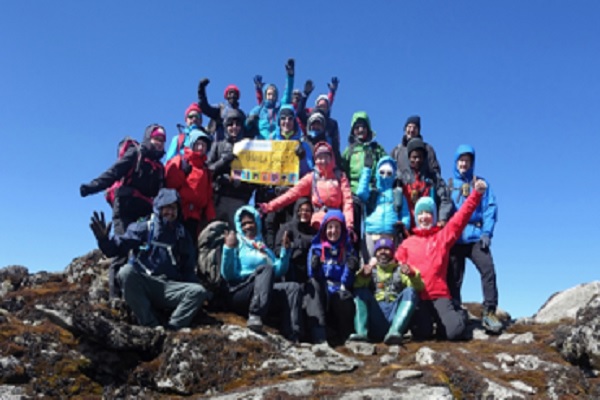 Credit: SOSVE
Credit: SOSVE
SOS Villages d'Enfants Monde (SOSVE) has raised €50,000 for its branch in Entebbe as part of the Uganda Challenge 2019.
Since 2013, SOSVE has been regularly organising sporting and solidarity challenges that take participants across the world. After two Kilimanjaro Challenges (in 2013 and 2014) and a Nepal Challenge (2017), early 2019 saw the birth of a Uganda Challenge in the heart of the Mountains of the Moon (Rwenzori range). The goal of the challenge was to raise more money for vulnerable children in this East African country.
The Uganda Challenge 2019 saw 9 women and 9 men (10 nationalities) embark on ten days of adventure, including six days of intensive walking in Rwenzori Mountains National Park from Kyanjuki Village to Weismann's Peak. SOSVE Head of Partnerships Anne Schweizer and Director of RightFoot Adventures Ben Hamilton were among the 18 participants making up the Uganda Team. The trek was difficult due to the structure of the terrain but the team managed to raise the sum of €50,000 for their cause.
The team received the cheque at the symbolic Weismann's Peak, 4,620 metres-high. The funds raised by the team - each participant having found generous "sponsors" to support the challenge - will go towards the Village d’Enfants SOS in Entebbe, especially for a large solar panel project. Anne Schweizer commented: "This is the future of Africa," who went on to speak of "clean, cheap energy that will guarantee continuous power and benefit everyone, especially children, to study in the village".
Before embarking on their challenge in the west of the country in this border region of the DRC, participants visited the Village d’Enfants SOS Entebbe in the east of the country. They were greeted by the president, Sam Bwaya, and the director, Olive Lumonya, of SOS Village d’Enfants Uganda and met with some of the SOS team and families. The village, which can accommodate up to 150 children in 12 family houses, encompasses an SOS Children's Garden (for more than 200 children) and an SOS Medical Centre, both accessible to community members.
The Luxembourg team was able to gain a better understanding of the work being done on the ground for the most vulnerable in this country which is also the first refugee host country in Africa. In fact, Uganda is home to more than 1.4 million refugees from many neighbouring countries.








